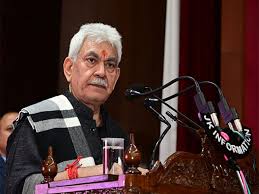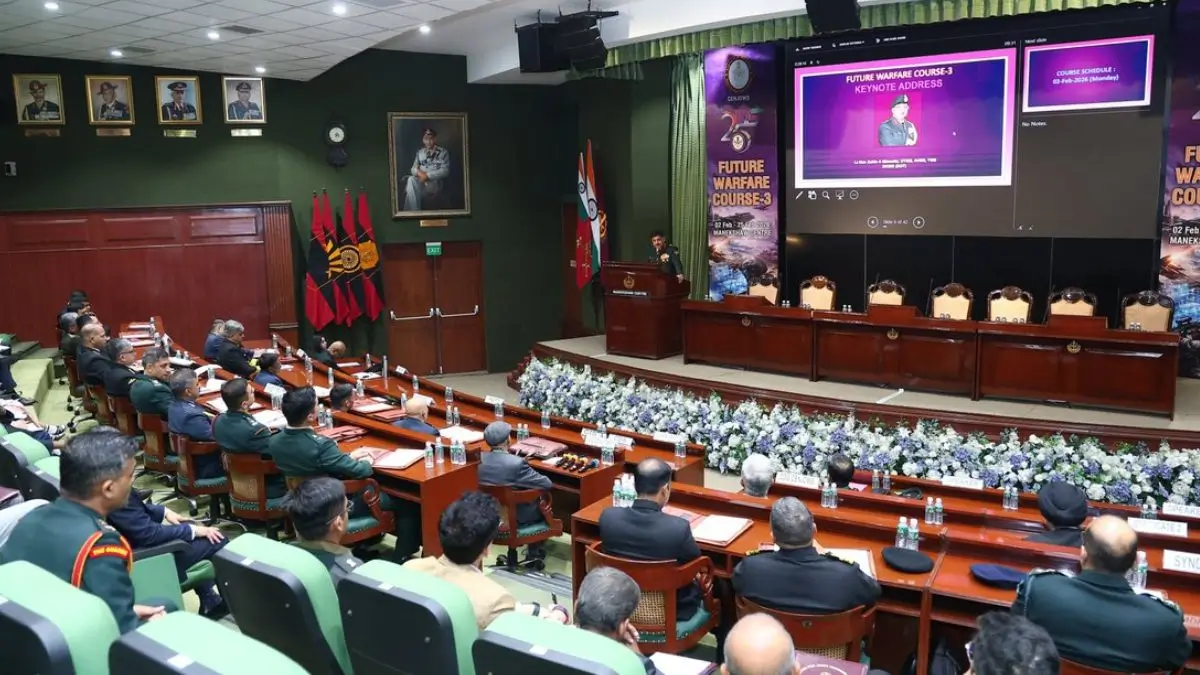Centre Empowers Lieutenant Governor of Jammu and Kashmir
Introduction
In a significant move, the Central Government has granted enhanced powers to the Lieutenant Governor (LG) of Jammu and Kashmir. This decision aims to streamline the administration and enhance the efficiency of governance in the Union Territory (UT). This article delves into the details of this development, its implications, and the historical context behind this decision.
Enhanced Powers to the Lieutenant Governor
The Centre’s recent decision empowers the LG of Jammu and Kashmir with greater administrative control. This includes authority over various administrative functions, financial matters, and policy decisions. By conferring these powers, the Central Government aims to ensure that governance in Jammu and Kashmir is more responsive, effective, and aligned with the region’s unique needs.
Implications for Governance
This move is expected to bring about significant changes in the governance structure of Jammu and Kashmir. With enhanced powers, the LG can now make decisions more swiftly, bypassing some bureaucratic delays. This is particularly crucial for implementing developmental projects, ensuring law and order, and addressing local issues promptly.
Administrative and Financial Autonomy
One of the key aspects of this empowerment is the increased financial autonomy granted to the LG. This will enable the LG to allocate resources more efficiently and prioritize development projects that are crucial for the region’s progress. The administrative autonomy will also allow for better coordination between various departments, leading to more cohesive and effective governance.
Aims to Foster Development and Stability
The decision to empower the LG is part of the Centre’s broader strategy to foster development and stability in Jammu and Kashmir. By centralizing decision-making authority, the government hopes to overcome the challenges posed by the region’s complex socio-political landscape. This move is seen as a step towards ensuring that the benefits of governance reach the grassroots level.

Why This News is Important
Impact on Governance in Jammu and Kashmir
The empowerment of the LG is a critical development in the governance of Jammu and Kashmir. It signifies the Central Government’s commitment to improving administrative efficiency and ensuring that the region’s governance is more responsive to the needs of its people. This move is expected to accelerate developmental projects and improve the overall quality of governance.
Strategic Significance
Jammu and Kashmir holds a unique and strategic position in India. Enhancing the powers of the LG is a strategic move to stabilize and develop the region. It reflects the government’s intent to integrate the region more closely with the rest of the country, ensuring that it benefits from national development programs and policies.
Policy Implementation
The decision also underscores the importance of efficient policy implementation. By granting more powers to the LG, the government aims to ensure that policies and programs are implemented more effectively. This is crucial for addressing the unique challenges faced by the region and for driving socio-economic development.
Enhancing Local Administration
Empowering the LG is a step towards strengthening local administration in Jammu and Kashmir. It is expected to bring about better coordination among various administrative bodies and ensure that governance is more transparent and accountable. This, in turn, will foster greater trust among the local population in the administration.
Historical Context
Background of Jammu and Kashmir’s Governance
Jammu and Kashmir has had a unique governance structure due to its special status under Article 370 of the Indian Constitution, which was abrogated in August 2019. Since then, the region has been undergoing significant administrative changes. The transition from a state to a Union Territory marked a new phase in its governance, aimed at integrating it more closely with the rest of India.
Previous Reforms
The recent empowerment of the LG follows a series of reforms aimed at strengthening governance in Jammu and Kashmir. Previous reforms include the reorganization of the state’s administrative structure and efforts to enhance transparency and accountability. These reforms are part of the government’s broader strategy to ensure stability and development in the region.
Historical Challenges
Jammu and Kashmir has faced numerous challenges over the decades, including political instability, militancy, and socio-economic issues. The enhanced powers of the LG are aimed at addressing these challenges more effectively. By streamlining governance, the Centre aims to create a more conducive environment for development and stability.
Key Takeaways from Centre Empowers Lieutenant Governor of Jammu and Kashmir
| Serial Number | Key Takeaway |
|---|---|
| 1 | The Centre has granted enhanced powers to the LG of Jammu and Kashmir. |
| 2 | This move aims to streamline governance and improve administrative efficiency in the region. |
| 3 | Increased financial and administrative autonomy will allow for better resource allocation and project implementation. |
| 4 | The decision is part of the Centre’s broader strategy to foster development and stability in Jammu and Kashmir. |
| 5 | This empowerment is expected to enhance local administration and ensure more responsive governance. |
Important FAQs for Students from this News
1. What are the enhanced powers granted to the Lieutenant Governor of Jammu and Kashmir?
The enhanced powers include greater administrative control, financial autonomy, and authority over various policy decisions. This allows the LG to make decisions more swiftly and efficiently, addressing local issues and implementing developmental projects effectively.
2. Why has the Central Government empowered the LG of Jammu and Kashmir?
The Central Government has empowered the LG to streamline governance, improve administrative efficiency, and ensure more responsive governance in the region. This move is aimed at fostering development and stability in Jammu and Kashmir.
3. How will the enhanced powers of the LG impact the governance of Jammu and Kashmir?
The enhanced powers are expected to bring about significant improvements in governance by enabling quicker decision-making, better resource allocation, and more effective implementation of policies. This will help in addressing the region’s unique challenges and driving socio-economic development.
4. What is the historical context behind this decision?
The historical context includes the abrogation of Article 370 in August 2019, which marked the beginning of significant administrative changes in Jammu and Kashmir. The recent empowerment of the LG is part of a series of reforms aimed at strengthening governance and integrating the region more closely with the rest of India.
5. What are the strategic implications of this decision?
The strategic implications include stabilizing the region, enhancing local administration, and ensuring that Jammu and Kashmir benefits from national development programs. This move reflects the government’s commitment to improving governance and fostering development in the region.
Some Important Current Affairs Links

















